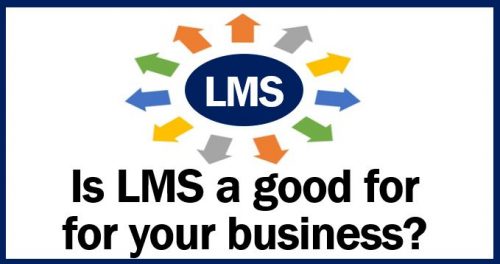When you know what LMS is and how it will help you create your training programs, it is time for you to narrow down your focus to “what type of LMS you need?”

LMS comes in different shapes and sizes. Depending on your course material, company’s financial stature and convenience, you can decide to go for one kind.
Besides the features, every LMS company will fit into any one category.
Here are five types of LMS companies you should know before choosing one.
-
Free LMS
Anything that comes in Free is an added benefit. Of course, some Learning Management Systems offer their customers a free version.
It serves an entry point for Small and Medium based businesses as the key features are free.
Plus, you can set the limits for your small team and pay accordingly.
Moodle and Cortex Learn LMS are some of the best LMS companies that offer FREE pricing plans to their users.
-
Cloud-based LMS
Cloud-based LMS are easily accessible from anywhere since they don’t require any software installed on the customer’s computer.
Instead of depending on the installed devices for every single-use, cloud-based LMS, companies offer their consumers freedom of accessibility.
You can log in via the web portal to use all your course materials. This is specifically advantageous for remote employees and for those who commute.
iSpring Learn is a popular cloud-based LMS that is both suitable for small scale and large scale businesses.
Other benefits include automated updates, simple implementation and minimum start-up costs.
Particularly during this pandemic, such LMS lends you a helping hand in upskilling your employees.
-
Software as a Service (SaaS) LMS
All Learning Management Systems have the ability to scale up or down, depending on your preferences.
When it comes to this type, the LMS vendors offer extra support to host and take care of all your server specifications.
You needn’t shed your energy on the technical aspects rather enjoy the benefits of it. Since there is no problem of storing data in local servers, scalability becomes seamless.
Majority of the SaaS LMS can be scaled up or down based on their users count with ease.
It is the exact opposite of the locally installed LMS where the users can customize their LMS.
If you have an IT staff to take care of security, hosting and uptime, then a locally hosted LMS is a great option.
-
Open source and Closed source
Open source and Closed source LMS options are subcategories under installed LMS. No cloud-based or SaaS LMS can be open source.
Basically, Open source LMS has the source code available for any developer to customize for any purpose. They don’t charge a license fee, but that doesn’t mean it is always free.
You need to pay ransom money to download the software from this kind of LMS company.
On the contrary, in closed sources, you can’t change the configurations of the LMS.
Chamilo and Moodle are popular open-source LMS whereas TalentLMS and Easy LMS are cloud-based closed source LMS.
-
Integrated LMS
Learning Management Systems comes with integration and without integrations. If you need an all-in-one solution for your employee management, integrated LMS is a powerful option.
Many LMS offers third-party integrations with PayPal, WordPress, Zoom and much more.
Even some LMS have a built-in authoring software to create your course within the LMS. Plus, you get combined reporting features based on other apps too.
If you are not outsourcing training content creation, then you can go for the integrated LMS.
The Bottomline
A clear understanding of all these LMS company types will make you take the apt decision. We hope our insights supported your LMS research process.
Interesting Related Article: “Is LMS A Good Fit For Your Business? Here’s Everything You Need To Know“

